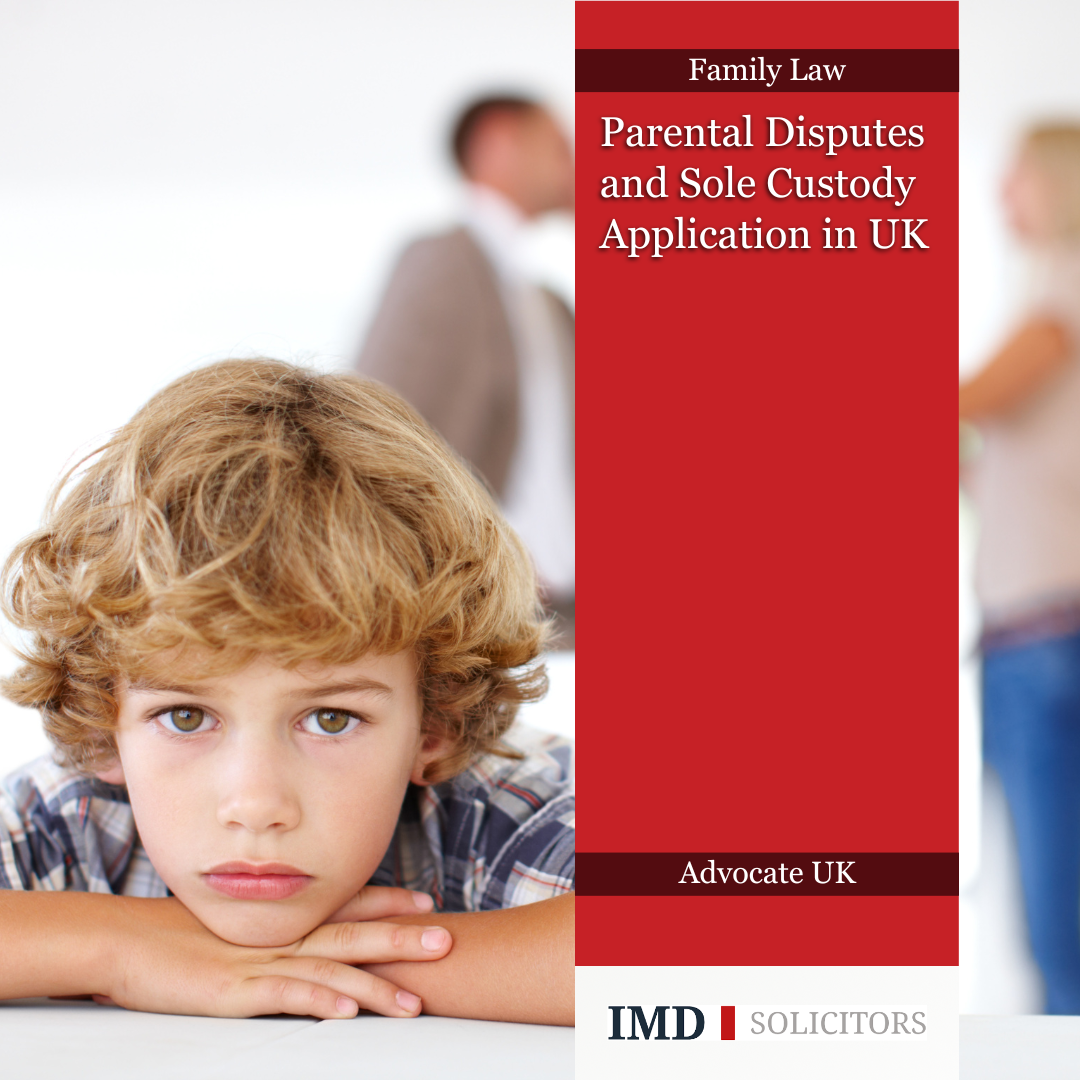
Family law often presents complex challenges, especially when it involves the welfare and upbringing of children. One of the most frequent issues faced by parents following a separation is the breakdown of communication regarding major decisions concerning their child’s life. This case study explores the legal avenues available to parents when one party is uncooperative, particularly in matters involving travel, relocation, and significant life decisions for the child. The case study draws extensively on a scenario involving IMD Solicitors LLP, highlighting the insights of UK family law, parental responsibilities, and the court processes involved.
Legal Framework and Parental Responsibilities
Under UK law, when both parents are named on a child’s birth certificate, they share what is legally known as “parental responsibility.” This legal status grants them the right to be involved in major decisions affecting their child’s life, such as education, healthcare, and relocation. Parental responsibility is not merely a right but also a duty, emphasising the importance of both parents being actively engaged in their child’s welfare.
However, post-separation, the cooperation required to exercise these responsibilities often deteriorates. When communication breaks down, particularly in cases involving significant decisions such as obtaining a passport, traveling abroad, or choosing a school, one parent may find themselves unable to proceed without the consent of the other. In such instances, where no amicable agreement (through private discussions, negotiations and/or mediation) is possible, the only legal recourse is to seek intervention from the courts.
When a parent encounters non-cooperation from the other, and private negotiations or mediation fails, they may need to apply to the court for a Specific Issue Order or a Prohibited Steps Order under the Children Act 1989. A Specific Issue Order allows the court to make a decision on a particular issue, such as granting permission for the child to travel abroad. Conversely, a Prohibited Steps Order can prevent a parent from making decisions without the court’s approval, such as relocating the child to another area or country.
In the context of IMD Solicitors LLP, many inquiries come from parents wishing to obtain travel documents or move abroad with their child. In these situations, if the other parent’s consent cannot be obtained, an application to the court becomes necessary. The court will then assess the case based on the child’s best interests, a principle that is paramount in family law.
Practical Considerations and Court Proceedings
When making a court application, it is important to understand that the process involves several stages, including submitting the application, attending hearings, and possibly participating in mediation if the court deems it appropriate. If the respondent parent is uncooperative or fails to engage with the court process, the court can make a decision in their absence. This can expedite the proceedings, but it also underscores the importance of proper legal representation to navigate the complexities involved.
For parents who are nationals of other countries, additional considerations come into play. If a UK court order is obtained, and the parent wishes to enforce it in their home country, they must be aware of the additional documentation required to register the order with foreign authorities. This aspect of cross-border enforcement is critical and often overlooked by parents unfamiliar with international family law.
Another frequent inquiry relates to obtaining sole custody of the child. In the UK, the concept of sole custody, as understood in some other jurisdictions, is not typically granted. UK courts are reluctant to remove parental responsibility unless there are extreme circumstances, such as cases involving severe neglect or abuse. Instead, the courts may issue a Child Arrangements Order that specifies with whom the child will live and outlines the contact arrangements with the other parent.
While this order does not remove parental responsibility, it does grant the resident parent a greater degree of control over the child’s day-to-day life. However, the non-resident parent retains their legal rights, including the right to be consulted on major decisions. This balanced approach reflects the UK courts’ focus on maintaining the child’s relationship with both parents, wherever possible.
This case study highlights several important aspects of family law in the UK:
In family law, particularly in cases involving children, the legal framework aims to protect the child’s best interests while balancing the rights and responsibilities of both parents. When cooperation breaks down, seeking legal advice and possibly court intervention becomes necessary. This case study underscores the importance of understanding one’s legal rights and responsibilities, as well as the need for professional guidance to navigate the complexities of family law effectively.
IMD Solicitors LLP’s experience in handling such cases provides valuable insights into the practicalities of family law, offering clients the necessary expertise to resolve disputes in a manner that upholds the best interests of the child while ensuring legal compliance.
This article is for general information only and does not constitute legal or professional advice. Please note that the law may have changed since this article was published.